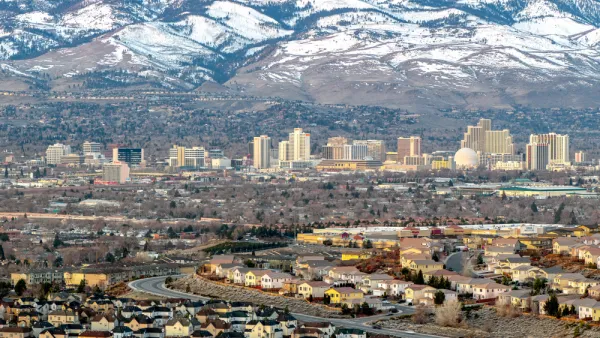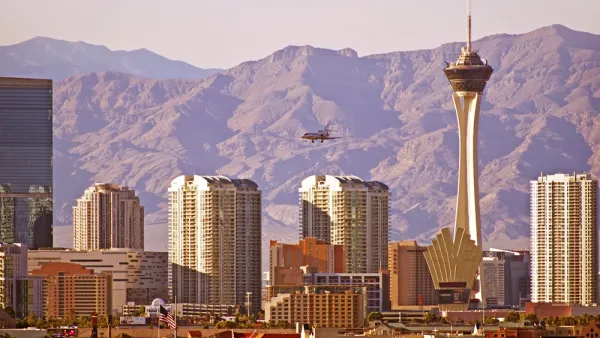Seen as a source of economic development and easy money for cities (struggling or not) throughout North America, casino projects are neither a revenue panacea nor the win-win "economic bullet" that supporters claim, argues Richard Florida.
As New York State looks to join the ranks of those legalizing "full-scale" gambling, Florida makes the argument against the "powerful allure" of "big ground-breakings; new jobs in construction, hospitality and gaming tables; and substantial new sources of public revenue."
"While politicians and casino magnates seek to sell gambling complexes to the public as magic economic bullets," says Florida, "virtually every independent economic development expert disagrees — and they have the studies to back it up."
"In his 2004 book 'Gambling in America: Costs and Benefits,' Baylor University economist Earl Grinols totaled the added costs that cities must pay in increased crime, bankruptcies, lost productivity and diminished social capital once they introduce casinos to their economic mix. He found that casino gambling generates roughly $166 in social costs for every $54 of economic benefit. Based on this, he estimates that the 'costs of problem and pathological gambling are comparable to the value of the lost output of an additional recession in the economy every four years.'”
While the three cities - Reno, Las Vegas, and Atlantic City - that only three decades ago had a monopoly on casinos have learned not to rely on unstable gambling revenues, and seek to diversify their economies, places like Detroit, Cleveland, Chicago, Boston, and Toronto are looking to get into the gambling game. Florida suggests officials in these cities think twice before they roll the dice.
FULL STORY: Gambling away our cities

Analysis: Cybertruck Fatality Rate Far Exceeds That of Ford Pinto
The Tesla Cybertruck was recalled seven times last year.

National Parks Layoffs Will Cause Communities to Lose Billions
Thousands of essential park workers were laid off this week, just before the busy spring break season.

Retro-silient?: America’s First “Eco-burb,” The Woodlands Turns 50
A master-planned community north of Houston offers lessons on green infrastructure and resilient design, but falls short of its founder’s lofty affordability and walkability goals.

Test News Post 1
This is a summary

Analysis: Cybertruck Fatality Rate Far Exceeds That of Ford Pinto
The Tesla Cybertruck was recalled seven times last year.

Test News Headline 46
Test for the image on the front page.
Urban Design for Planners 1: Software Tools
This six-course series explores essential urban design concepts using open source software and equips planners with the tools they need to participate fully in the urban design process.
Planning for Universal Design
Learn the tools for implementing Universal Design in planning regulations.
EMC Planning Group, Inc.
Planetizen
Planetizen
Mpact (formerly Rail~Volution)
Great Falls Development Authority, Inc.
HUDs Office of Policy Development and Research
NYU Wagner Graduate School of Public Service



























